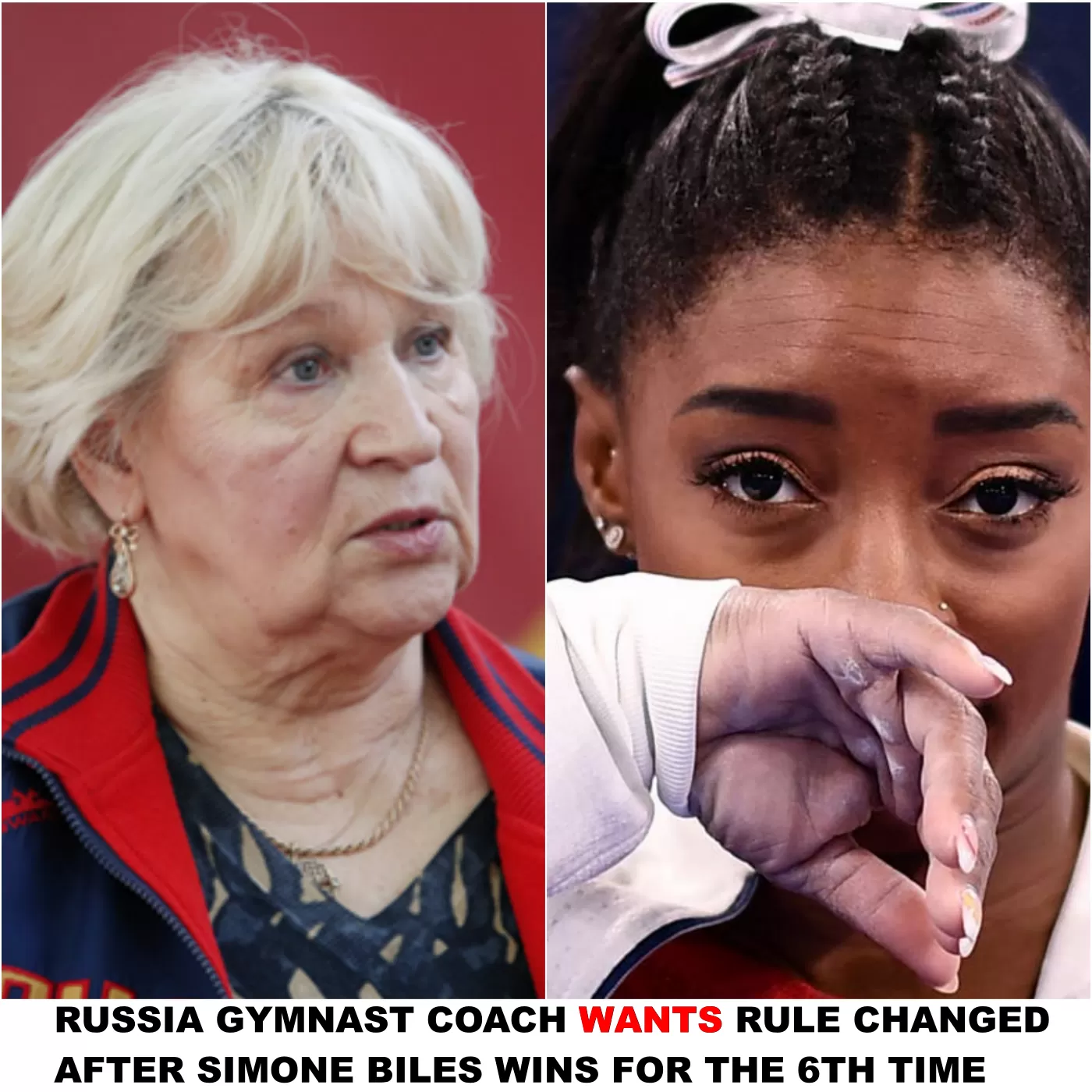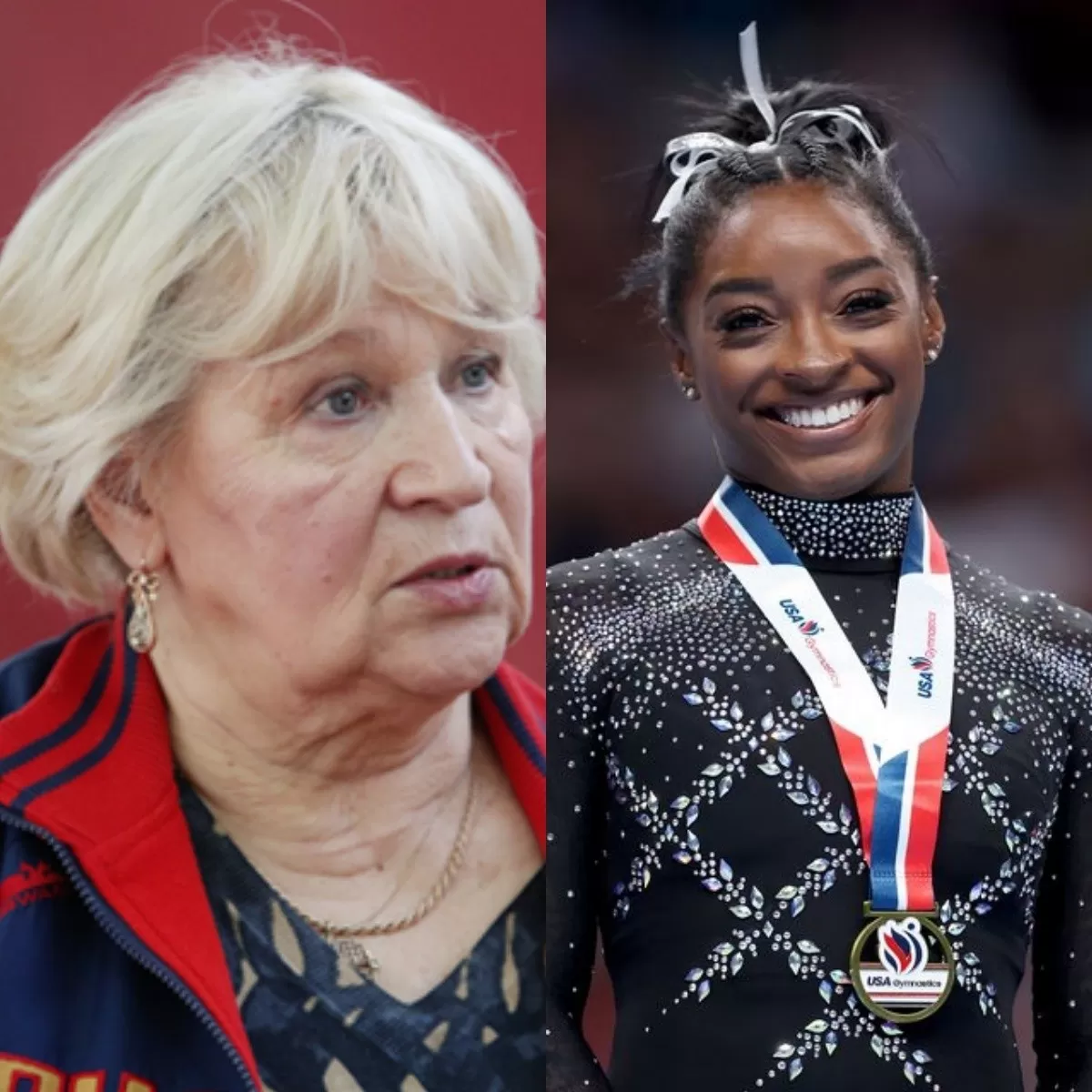Simone Biles made a triumphant return to the international stage at the 2023 Gymnastics World Championships, clinching her sixth all-around title. However, her performance has not been without controversy, as Valentina Rodionenko, the head coach of the Russian artistic gymnastics team, voiced strong criticism over the judging criteria that led to Biles’ victory.

After a two-year hiatus from international competition, Simone Biles returned to the gymnastics arena with a performance that left fans and fellow athletes in awe. The American gymnast won five medals at the 2023 Gymnastics World Championships, including four golds and one silver, further cementing her status as the most decorated gymnast in Olympic and World Championship history. Biles showcased her exceptional skill and athleticism, executing routines that included some of the most difficult elements ever attempted in the sport.
For many, Biles’ comeback was a celebration of her resilience and unparalleled talent. Her return was widely covered, with commentators praising her ability to push the boundaries of gymnastics. Her routines were lauded for their complexity and technical precision, and she demonstrated why she is often considered the greatest gymnast of all time.
However, not everyone was impressed. Valentina Rodionenko, the head coach of the Russian gymnastics team, expressed dissatisfaction with Biles’ performance, arguing that it lacked the artistic components traditionally valued in gymnastics. In an interview with Match TV, Rodionenko stated:
“I want to express my regrets about Biles’ victory. What is gymnastics? It’s scary to watch it! Do you think there is at least some kind of aesthetic there – low? There is simply nothing to watch. She has no great performance, only difficulty. She only wins through difficulty.”
Rodionenko’s comments highlight a broader debate within the gymnastics community: the balance between athletic difficulty and artistic expression. While Biles is celebrated for her groundbreaking moves, Rodionenko argues that the sport has shifted too far towards rewarding technical difficulty at the expense of artistry.
Rodionenko’s remarks have sparked a conversation about the current scoring system used in gymnastics competitions. The Code of Points, which governs gymnastics scoring, emphasizes the difficulty of skills and combinations. While artistry is considered, many believe that it does not hold the same weight as the technical aspects of a routine.
Critics like Rodionenko argue that this focus on difficulty diminishes the artistic beauty that once defined the sport. They believe that gymnasts should be rewarded for performances that not only showcase skill but also grace, creativity, and expression.
In contrast, supporters of the current system argue that athletes like Biles have elevated the sport to new heights, pushing the boundaries of what is physically possible. They contend that gymnastics is an evolving sport, and Biles’ performances are a testament to that evolution.
Rodionenko’s critique has reignited calls for a reevaluation of the scoring system. Some in the gymnastics community are advocating for rule changes that would place greater emphasis on artistry, encouraging routines that balance technical prowess with aesthetic appeal.
Despite the criticism, Biles remains focused on her goals and has not publicly responded to Rodionenko’s comments. Her achievements continue to inspire young gymnasts worldwide, demonstrating that perseverance and innovation can lead to unparalleled success.
As the gymnastics community grapples with these issues, it remains to be seen whether changes to the scoring system will be implemented. For now, Simone Biles stands as a symbol of excellence, and her performances continue to captivate audiences around the globe.
While the debate over difficulty versus artistry continues, one thing is certain: Simone Biles’ impact on the sport of gymnastics is undeniable, and her legacy will influence the next generation of gymnasts for years to come.





